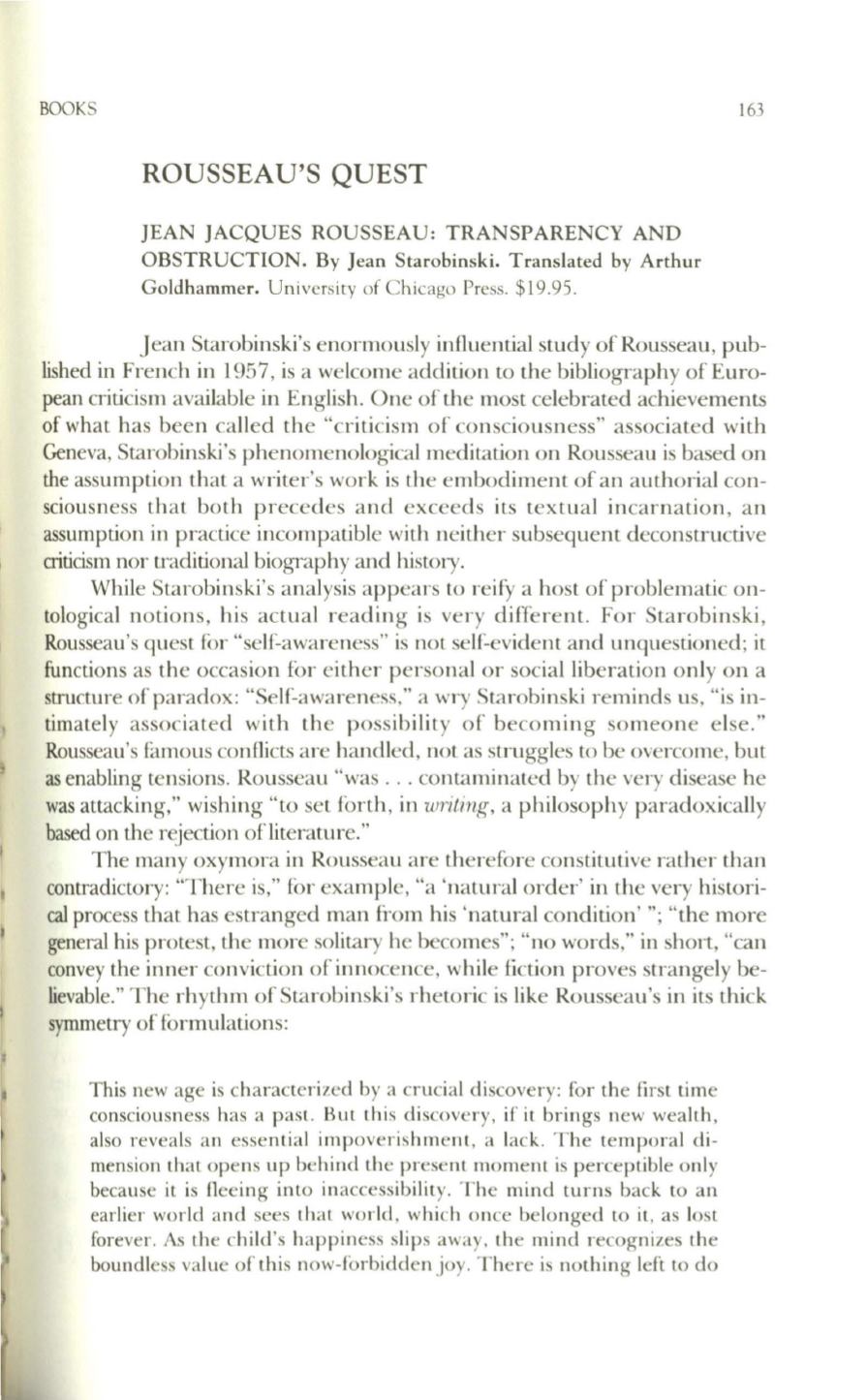
BOOKS
ROUSSEAU'S QUEST
JEAN JACQUES ROUSSEAU: TRANSPARENCY AND
OBSTRUCTION. By Jean Starobinski. Translated by Arthur
Goldhammer. University of Chicago Press. $19.95.
163
Jean Starobinski's enormously influential study of Rousseau, pub–
lished in French in 1957, is a welcome addition to the bibliography of Euro–
pean criticism available in English. One of the most celebrated achievements
of what has been called the "criticism of consciousness" associated with
Geneva, Starobinski's phenomenological meditation on Rousseau is based on
the assumption that a writer's work is the embodiment of an authorial con–
sciousness that both precedes and exceeds its textual incarnation, an
assumption in practice incompatible with neither subsequent deconstructive
criticism nor u-aditional biography and history.
While Starobinski's analysis appears to reify a host of problematic on–
tological notions, his actual reading is very different. For Starobinski ,
Rousseau's quest for "self-awareness" is not self-evident and unquestioned; it
functions as the occasion for either personal or social liberation only on a
structure of paradox: "Self-awareness," a wry Starobinski reminds us , "is in–
timately associated with the possibility of becoming someone else ."
Rousseau's famous conflicts are handled, not as struggles to be overcome, but
as enabling tensions. Rousseau "was . . . contaminated by the very disease he
was attacking," wishing "to set forth, in
writing,
a philosophy paradoxically
based on the rejection of literature."
The many oxymora in Rousseau are therefore constitutive rather than
contradictory: "There is," for example, "a 'natural order' in the very histori–
cal
process that has estranged man from his 'natural condition' "; "the more
general his protest, the more solitary he becomes"; "no words," in short, "can
convey the inner conviction of innocence, while fiction proves strangely be–
lievable." The rhythm of Starobinski's rhetoric is like Rousseau's in its thick
symmetry of formulations:
This new age is characterized by a crucial discovery: for the first time
consciousness has a past. But this discovel-y, if it brings new wealth,
also reveals an essential impoverishment, a lack. The temporal di–
mension that opens up behind the present moment is perceptible only
because it is fleeing into inaccessibility. The mind turns back to an
earlier world and sees that world , which once belonged to it, as lost
forever.
As
the child's happiness slips away, the mind recognizes the
boundless value of this now-forbidden joy. There is nothing left
to
do


